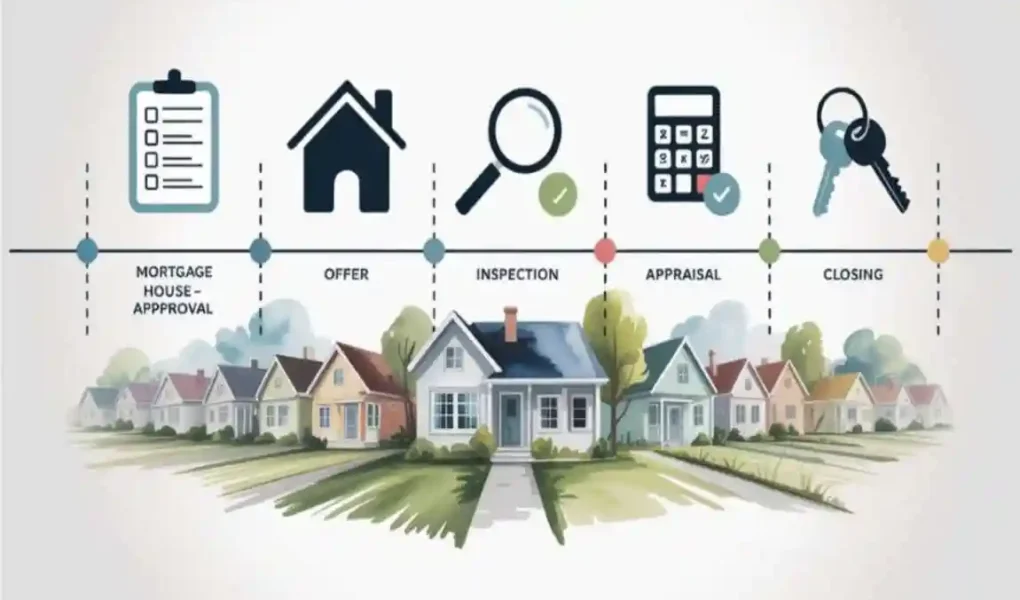Buying a home is one of the most exciting moments in life. You imagine the day you get the keys, walk through your new front door, and start making it your own. But have you ever wondered when the buyer takes possession of the home? Is it right after closing? Or could it be days or even weeks later? This question is crucial because it affects your moving plans, finances, and peace of mind.
According to the National Association of Realtors (NAR), the average U.S. home closing takes about 30-45 days from contract signing to final ownership transfer. However, the timing of possession can vary widely depending on the contract and local customs. Stick around for practical advice to avoid common pitfalls and get your keys when you expect them.
Standard Home Possession Timeline

Understanding the typical steps from contract signing to moving day helps set the right expectations. Let’s break down the home possession timeline after closing into clear stages.
What Happens at Closing?
Closing day is when the magic happens—or at least, the paperwork part of it. You and the seller (or your representatives) gather to:
- Sign all final legal documents, including the deed and loan documents.
- Exchange funds: your mortgage lender wires the money to the seller.
- The deed officially transfers ownership and is recorded with the local government.
Usually, possession occurs the same day as closing or within a few days after. Often, the buyer gets the keys once the seller’s obligations are met and funds are clear.
Common Possession Dates
Possession dates can vary based on the deal. Here’s a simple overview:
Possession Type Timeline Pros Cons
Same Day Possession Closing day Immediate move-in, less hassle. The seller must vacate quickly
1-3 Days After Closing 1-3 days post-close Standard for financed purchases Slight wait before move-in
7-30 Days (Lease-Back) 1-4 weeks post-close Seller gets time to move; flexible Buyer waits longer
- Same Day: Usually, cash deals or simple sales. The buyer walks in with the keys immediately.
- 1-3 Days After: Most financed homes fall into this category since lenders finalize funding.
- 7-30 Days: Sometimes the seller stays temporarily via a lease-back arrangement.
Factors Influencing Your Timeline
Your possession timeline depends on several factors:
- Cash vs. Mortgage: Cash buyers often get quicker possession than those relying on loans.
- Contingencies: Home inspection or appraisal issues can delay closing and, thus, possession.
- Location: U.S. states have different customs so that international buyers may face additional delays.
Variations in Possession Agreements
The contract between the buyer and seller can shape the timing of possession in many creative ways. Let’s explore a few common variations.
Immediate Possession
This means the buyer gets the keys right at closing or immediately after.
- Pros: You can start moving and settling in without delay.
- Cons: Sellers may feel rushed to vacate, which can create tension.
Seller Rent-Back (Lease-Back)
Sometimes, sellers need time after closing to find their next home or wrap up affairs. A lease-back agreement allows them to stay as tenants for an agreed period, often 30-60 days.
- Rent terms and responsibilities should be clearly outlined.
- Legal protections vary by state, so consult your agent or lawyer.
- This flexibility benefits both parties but requires trust and solid contracts.
Postponed Possession for Repairs or Contingencies
If inspections reveal issues or appraisals come in low, possession might be delayed until repairs or renegotiations are finished.
- Contracts often include clauses specifying how these delays affect possession.
- For example, “Buyer possession shall occur within 3 days of seller completing agreed repairs.”
Common Closing Delays and Possession Impacts

Closing delays are common—and frustrating. They often directly push back possession dates, messing with your moving schedule.
Top 5 Delay Causes
- Appraisal Issues: If the home appraises below the contract price, lenders might hesitate, causing delays. Rocket Mortgage reports that appraisals cause about 20% of closing delays.
- Title Problems: Unresolved liens, ownership disputes, or missing documents can hold up recording the deed.
- Financing Hurdles: Underwriting snags, last-minute documentation requests, or credit issues can slow loan approval.
- Inspection Repairs: Sellers may need extra time to fix problems uncovered during inspections.
- Final Walkthrough Surprises: If buyers find unexpected issues just before closing, they might delay possession.
How Delays Shift Possession
Every day a closing is delayed usually means the buyer gets possession one day later. For example, a one-week closing delay typically results in a one-week possession delay.
Real-Life Case Studies
- Texas Buyer’s Title Delay: A buyer in Texas waited an extra two weeks when a lien surfaced during the title search, delaying their move.
- California Lease-Back: A seller negotiated a 30-day lease-back after closing to complete the relocation without stress, allowing the buyer to plan accordingly.
Key Tips to Secure Possession on Time
Moving into your new home on schedule is a top priority. Here are practical buyer possession tips to keep your closing and move smooth.
Pre-Closing Prep Checklist
- Review your purchase agreement’s possession clause early to know your rights.
- Schedule your final walkthrough 24-48 hours before closing to catch issues early.
- Line up your movers and transfer utilities well in advance.
Negotiating Possession Terms
- Build buffer days into your possession date to handle surprises.
- Offer incentives, such as rent or flexible terms, to sellers needing extra time.
Handling Delays Proactively
- Keep communication open with your real estate agent and lender.
- Have backup plans, like temporary storage or short-term housing, ready.
Post-Closing Essentials
- Change locks immediately after possession for security.
- Confirm utilities transfer to your name to avoid service interruptions.
- Avoid “constructive eviction” by ensuring the seller vacates as agreed.
Legal and Regional Considerations

Possession rules vary by region and legal frameworks. Knowing your local laws helps avoid surprises.
Standard Laws by Region
- United States: Many states, such as California, require possession on closing day. Others allow negotiated timelines.
- Pakistan: Possession usually occurs after a registry transfer at local land offices; timelines vary by city and paperwork.
What If Things Go Wrong?
- Breach of possession terms can lead to legal remedies such as the recovery of earnest money or eviction proceedings.
- Always consult a real estate attorney if disputes arise.
FAQs: When Does the Buyer Take Possession of the Home?
Q: When does the buyer take possession of the home after closing?
A: Typically, possession occurs the same day or within 1-3 days after closing, depending on contract terms.
Q: Can the seller stay after closing?
A: Yes, through a lease-back agreement, sellers can remain temporarily as tenants.
Q: What causes most possession delays?
A: Appraisal issues and title problems are the top causes.
Q: How can buyers prepare for possession delays?
A: Stay in close contact with your agent and have backup moving plans.
Q: Are possession laws the same everywhere?
A: No, possession timing and rules vary by state and country.




